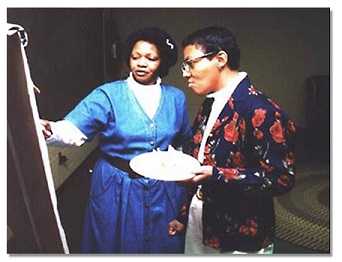Supervising CHWs: Key Skills and Methods
| < Back | Next > |
|---|
 The following are key skills and methods of supervising CHWs:
The following are key skills and methods of supervising CHWs:
- Support and nurturing skills
- Appropriate use of:
- Personal life experiences
- Clinical knowledge and experience
- Communicating standards and mission commitment
- Encouraging personal problem solving
View Transcript
[SPEAKER]
Partly because many CHWs come from challenging backgrounds similar to those of the people they serve, and partly because of the unique stresses associated with working as a CHW, supervisors often must provide more support and nurturing than they may be accustomed to providing. CHWs may tend toward "burnout" because they are trying to do too much. They also may experience stress because of personal boundary issues: as members of the community, they may have personal relationships with many of their clients, and they must keep these relationships distinct. Good training includes an emphasis on setting boundaries and avoiding burnout, but the supervisor will still have to deal with these issues.
CHW supervisors must strike a balance between relating to CHWs on a personal level and as an expert authority. A CHW working with a community member will usually not say, “Here’s what you have to do,” but rather, “I was in a situation like this myself, and here’s what I did; maybe you’d like to try that.” A supervisor will usually approach a CHW in much the same way. Using examples from one’s personal life experience has value as a teaching tool, but if it is carried too far, it can shift too much focus to oneself.
In addition, the supervisor is responsible for communicating the organization’s expectations of commitment to its mission in a way that respects the CHW’s other values and beliefs. The supervisor must keep in mind that the CHW’s loyalties may be divided between the community and the organization.
Personal problem solving is part of personal growth and professional development. Again, supervisors need to support and coach CHWs in solving personal and work-related problems just as CHWs are expected to encourage and empower community members to solve problems.
Finally, any supervisor will need to deal with differences in levels of performance. In the case of CHWs, this process must be handled with particular sensitivity to avoid appearances of disproportionate attention either to the “stars” or to those with the poorest performance. This dynamic can be difficult among workers who may have limited work experience, and who in many cases have experienced limited career encouragement and even the effects of discrimination and racism.
- Page last reviewed: January 26, 2016
- Page last updated: January 26, 2016
- Content source:



 ShareCompartir
ShareCompartir